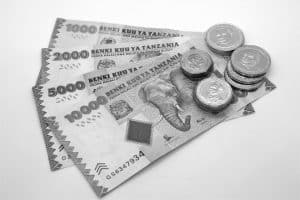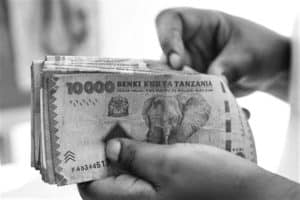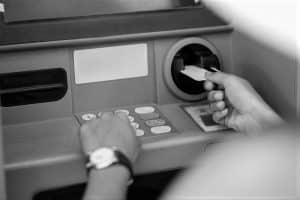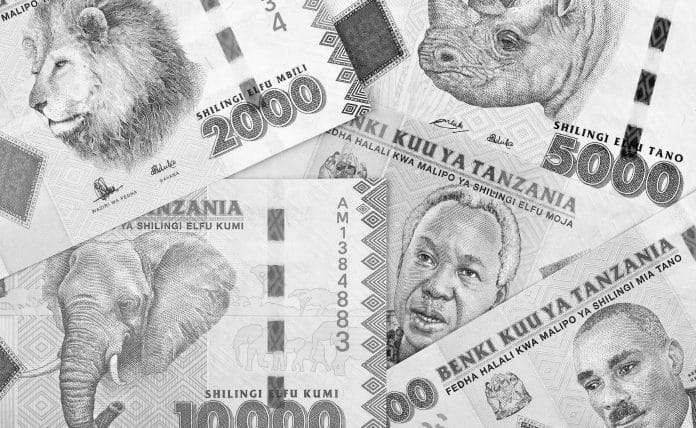Navigating Currency in East Africa: Everything You Need to Know about Tanzania and Zanzibar’s Currencies
Planning a trip to Tanzania and Zanzibar? One of the key aspects to consider is the currency. Understanding the local currency and how it works can save you time, money, and unnecessary stress during your travels. In this comprehensive guide, we will take you through everything you need to know about what currency is used in Tanzania and Zanzibar.
In Tanzania, the official currency is the Tanzanian Shilling (TZS). While US Dollars are widely accepted in major tourist areas, it is advisable to carry some local currency for day-to-day purchases. We will delve into where and how to exchange your money, as well as provide tips on avoiding scams and getting the best exchange rates.
In Zanzibar, the situation differs slightly. While the Tanzanian Shilling is the official currency, US Dollars are the preferred currency in many establishments. We will explore the reasons behind this and provide tips on when and where to use which currency.
By the end of this guide, you will have all the knowledge and confidence to navigate currency in Tanzania and Zanzibar like a pro. Let’s embark on this financial safari together.
What Currency Is Used in Tanzania and Zanzibar: The Currency of Tanzania

Tanzania’s official currency is the Tanzanian Shilling (TZS). The currency is denoted by the symbol “TSh” and is further divided into 100 cents. When traveling to Tanzania, it is advisable to have some local currency on hand for day-to-day expenses, especially in smaller towns and rural areas where US Dollars may not be accepted.
To obtain Tanzanian Shillings, you can exchange your currency at banks, exchange bureaus, or withdraw money from ATMs. It is crucial to be aware of the current exchange rates to ensure you get a fair deal. While major currencies such as US Dollars, Euros, and British Pounds are widely accepted, it is recommended to bring US Dollars as they are the most commonly used foreign currency in Tanzania.
When exchanging your money, make sure to bring crisp and clean bills as damaged or torn currency may not be accepted. It is also advisable to carry small denominations as it can be challenging to get change for larger bills, especially in remote areas. Be cautious when exchanging money on the street, as there is a higher risk of counterfeit notes. Stick to reputable exchange bureaus or banks to avoid being scammed.
What Currency Is Used in Tanzania and Zanzibar: The Currency of Zanzibar
In Zanzibar, the official currency is also the Tanzanian Shilling (TZS). However, US Dollars are widely accepted and often preferred in many establishments, especially those catering to tourists. This is due to the stability of the US Dollar and its universal acceptance in the travel industry.
When visiting Zanzibar, it is recommended to carry both Tanzanian Shillings and US Dollars. While larger hotels, restaurants, and tour operators may accept credit cards, it is still advisable to have cash on hand for smaller establishments and markets where cards may not be accepted.
It is important to note that when paying in US Dollars, you may receive change in Tanzanian Shillings. Familiarize yourself with the current exchange rates and have a general idea of what items should cost in both currencies to avoid being overcharged or taken advantage of.
Exchange Rates and Currency Conversion
Now that you know what currency is used in Tanzania and Zanzibar, let’s discuss the exchange rates. Exchange rates fluctuate daily, so it is essential to stay updated with the current rates before exchanging your money. Online currency converters and financial apps can help you monitor the rates and calculate conversions on the go.
When comparing exchange rates, keep in mind that banks and exchange bureaus may charge a commission or fee for their services. Compare the rates and fees offered by different establishments to ensure you get the best deal. It is also worth noting that rates at airports and tourist areas may be less favorable, so consider exchanging a small amount of money to get you started and find a reputable exchange bureau in town for the remainder of your currency needs.
To calculate currency conversions, simply multiply the amount you want to convert by the current exchange rate. For example, if 1 US Dollar is equivalent to 2300 Tanzanian Shillings, you would multiply the amount in US Dollars by 2300 to get the equivalent in Tanzanian Shillings.
Remember to factor in any fees or commission charged by the exchange bureau when calculating the total amount you will receive. It is also a good idea to have a rough estimate of the local currency’s value in your home currency to avoid overspending or running out of funds during your trip.
Where to Exchange Currency in Tanzania and Zanzibar
Tanzania and Zanzibar have a range of options for exchanging currency. Banks, exchange bureaus, and some hotels offer currency exchange services. Banks usually offer competitive rates, but their operating hours may be limited, especially in rural areas. Exchange bureaus, on the other hand, often have longer operating hours and may offer more convenient locations.
It is advisable to use reputable banks or exchange bureaus to ensure the authenticity of the currency you receive. Avoid exchanging money on the street as it poses a higher risk of receiving counterfeit notes or falling victim to scams. If you are unsure where to exchange your money, ask for recommendations from your hotel or fellow travelers who have visited the area before.
When exchanging currency, make sure to count your money before leaving the establishment and keep your receipts for future reference. In case of any discrepancies or issues, having a record of the transaction will be beneficial.
Tips for Handling Currency in Tanzania and Zanzibar

- Carry a mix of cash and cards: While cash is essential for smaller establishments and markets, having a credit or debit card can provide additional flexibility. Make sure to inform your bank of your travel plans to avoid any issues with card transactions.
- Notify your bank: Before traveling, inform your bank about your trip to Tanzania and Zanzibar. Banks may block your card if they detect unusual activity, which could leave you without access to funds. Letting them know in advance will prevent any unnecessary complications.
- Have smaller denominations: Carry smaller bills and coins for everyday purchases, as it can be challenging to get change for larger bills, especially in remote areas. Having smaller denominations will also come in handy for tipping and small purchases.
- Keep emergency cash: It is always a good idea to have some emergency cash in a separate location, such as a hidden pocket or a different bag. This way, if you lose your main wallet or it gets stolen, you will still have some money to rely on.
- Research local customs: Familiarize yourself with the local customs and etiquette when handling money. In some cultures, it is considered disrespectful to use your left hand for transactions or to touch money with your feet. Being aware of these customs will help you navigate currency exchanges with ease.
Using Credit Cards and Atms in Tanzania and Zanzibar

Credit cards are widely accepted in larger establishments such as hotels, restaurants, and major stores in Tanzania and Zanzibar. However, it is always a good idea to carry cash as a backup, especially in remote areas or smaller establishments where cards may not be accepted.
Before using your credit card, check with your bank about any foreign transaction fees or currency conversion fees that may apply. Some banks offer travel-friendly cards that waive or reduce these fees, so it is worth exploring your options before your trip.
ATMs are readily available in major cities and towns, making it convenient to withdraw cash in the local currency. However, it is advisable to use ATMs located in banks or reputable establishments to minimize the risk of card skimming or other fraudulent activities.
Currency Scams and How to Avoid Them
While Tanzania and Zanzibar are generally safe for travelers, it is important to be aware of common currency scams and take precautions to avoid falling victim to them. Here are some tips to keep in mind:
- Use reputable exchange bureaus or banks: Avoid exchanging money on the street, as there is a higher risk of receiving counterfeit notes or being scammed. Stick to reputable establishments recommended by your hotel or fellow travelers.
- Count your money: Always count your money before leaving the exchange bureau or bank. If there are any discrepancies, address them immediately.
- Be cautious with street vendors: When purchasing goods from street vendors, be vigilant and make sure you receive the correct change. Some vendors may try to shortchange tourists who are unfamiliar with the local currency.
- Protect your personal information: When using ATMs or making card transactions, shield your PIN number and be cautious of your surroundings. Skimming devices and card fraud can occur, so it is important to stay alert.
- Research current scams: Stay informed about the latest currency scams targeting tourists in Tanzania and Zanzibar. Local travel forums and websites can provide valuable information and tips to avoid falling victim to these scams.
Currency Restrictions and Regulations in Tanzania and Zanzibar
Tanzania and Zanzibar have certain currency restrictions and regulations that travelers need to be aware of. The following are some key points to keep in mind:
- Currency import and export limits: The Tanzanian Shilling is a restricted currency, which means that there are limits to the amount of currency you can bring in or take out of the country. As of writing, the limit is 10,000 Tanzanian Shillings for both entering and leaving Tanzania.
- Declare large sums of money: If you are carrying more than the equivalent of $10,000 in any currency, including the Tanzanian Shilling, you must declare it upon arrival or departure. Failure to do so may result in confiscation of the funds or legal consequences.
- Be aware of counterfeit notes: Counterfeit currency is a concern in Tanzania and Zanzibar. Familiarize yourself with the security features of the Tanzanian Shilling to avoid accepting counterfeit notes. Look for watermarks, security threads, and other features that indicate authenticity.
- Check for damaged or torn currency: Ensure that the currency you receive is in good condition. Damaged or torn bills may not be accepted by businesses or exchange bureaus.
- Be respectful when handling money: Treat the local currency with respect and avoid displaying large sums of money in public. This will minimize the risk of attracting unwanted attention or becoming a target for theft.
Currency Tips for Travelers in Tanzania and Zanzibar
Knowing what currency is used in Tanzania and Zanzibar and navigating currency here may seem daunting at first, but with the right knowledge and preparation, it can be a smooth experience. Remember to carry a mix of cash and cards, familiarize yourself with the exchange rates, and choose reputable establishments for currency exchanges. Be cautious of scams and protect your personal information when using ATMs or making card transactions.
By following these tips and guidelines, you can ensure that your financial transactions during your trip to Tanzania and Zanzibar are hassle-free. Enjoy your travels and embrace the vibrant cultures and natural wonders these East African destinations have to offer!
For more articles related to Financial Services in Tanzania, click here!































